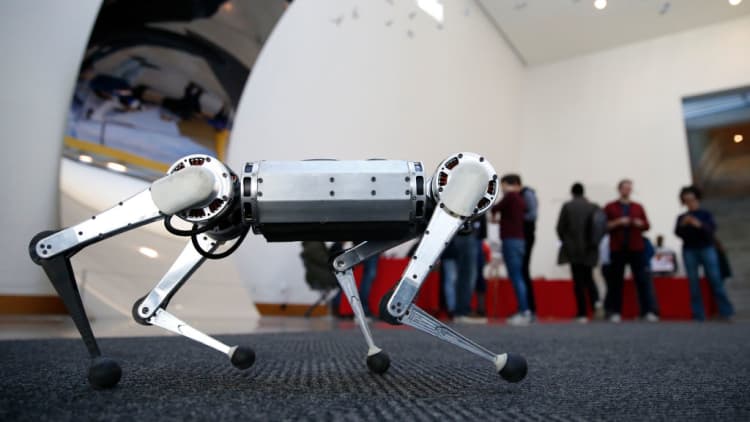Microsoft co-founder Bill Gates, Uber co-founder Travis Kalanick's 10100 fund and current Uber CEO Dara Khosrowshahi have invested in Luminous, a small start-up building an artificial intelligence chip.
The investment shows key figures in the technology industry believe there is still an opportunity for a new standard to emerge when it comes to hardware for AI, which can be incorporated into a variety of software applications. In all, the company raised $9 million in this seed round.
Several start-ups have been working on next-generation hardware in recent years as AI has become trendy. Intel bought one, called Nervana, in 2016. Neo, a VC fund by early Nervana investor Ali Partovi, is also investing in Luminous, which is based in Palo Alto, California.
"I always prefer to bet on a talented young team over a big established company," Partovi told CNBC via email. "While there's certainly a ton of risk, that's what makes it worth investing now: if the race was already over, it would be too late to invest."
Current companies are struggling to make big gains with chips that can run AI models, Luminous co-founder and CEO Marcus Gomez told CNBC in an interview on Monday. The seven-person company's goal is to build a chip that can substitute for 3,000 boards containing Google's latest Tensor Processing Unit AI chips, or TPUs.
"We know this works because we already have working silicon," Gomez said.
Google's entry into the AI silicon business was itself a bold development. The company took matters into its own hands, rather than relying on the Nvidia graphics cards that have become popular among AI researchers for training AI models with vast supplies of data. Google's public cloud now features its own TPUs; the company hasn't started selling these chips to other companies.
Luminous does want to sell its chips to different types of companies. Cloud providers like Google or Amazon Web Services could buy them. In addition, companies that make drones, robots or self-driving cars could work them into their systems, said Gomez who has worked at Google and Match Group's Tinder.
At Tinder, Gomez said, he would start training an AI model on a cloud in the morning and check to see if it was done in the evening. People should be able to train models in minutes, not hours or days, Gomez said.
He sees the company's use of silicon photonics as a way to distinguish from AI chip start-ups with similar aspirations, like Graphcore. Silicon photonics enables fast data transfer with light inside small places, like servers, similar to how fiber-optic cables can quickly move data over long distances. The approach Luminous is using draws on co-founder Mitchell Nahmias' earlier neuromorphic photonics work at Princeton University.
A few other start-ups, like Lightmatter and Lightelligence, are looking to silicon photonics to boost AI processing. Alphabet's GV invested in Lightmatter. The idea is to make the Luminous chip compatible with popular open-source AI software frameworks like TensorFlow and PyTorch.
Gomez said it's hard to say when the chips will become commercially available.
"We're using exact same technologies that everyone else is using, and so as a consequence, our timelines are on similar paths to other companies," he said.
Correction: An earlier version misstated the name of Kalanick's fund. It's 10100. In addition, this story was revised to clarify that it was Partovi's fund Neo that made the investment in Luminous.
WATCH: How artificial intelligence is disrupting industries across the board



